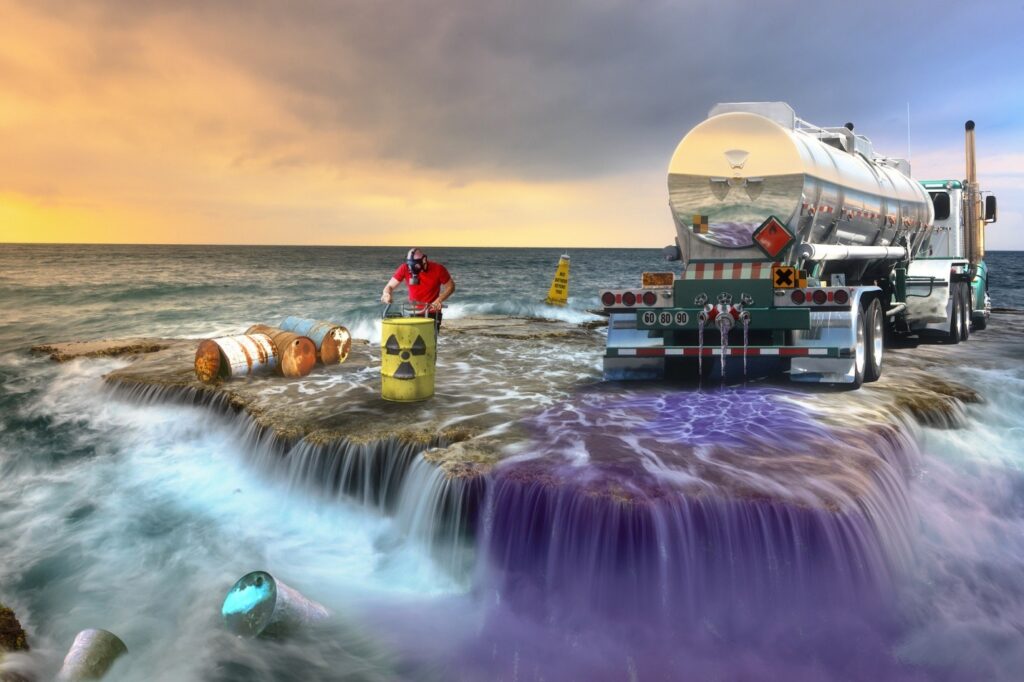Reclaim Waste for Beginners
Reclaim Waste for Beginners
Blog Article
Not known Factual Statements About Reclaim Waste
Table of ContentsExcitement About Reclaim WasteThe Best Strategy To Use For Reclaim WasteMore About Reclaim Waste10 Simple Techniques For Reclaim WasteReclaim Waste Can Be Fun For Anyone
With appropriate fluid waste administration, companies can reduce energy-intensive therapy procedures and disposal prices. By following a system for handling liquid waste, companies can stay clear of costly penalties and penalties and prevent negative attention.(http://peterjackson.mee.nu/where_i_work#c2441)Gather depictive samples from various factors within the waste stream to make certain accuracy. Conduct routine screening to track any kind of modifications in the make-up. Keep detailed records of characterization for future reference and conformity functions. Liquid waste, specifically dangerous ones, poses significant risks throughout this step. Correct procedures reduce spills, leakages, and various other crashes that can hurt the employees and the public.

Disinfection (e.g., chlorination, ultraviolet light, ozonation) and nutrient removal (e.g., denitrification and phosphorus eradication) are recommended under rigorous laws. Numerous companies broke numerous liquid waste disposal guidelines in recent years.
Not known Details About Reclaim Waste

are used by industries that generate big volumes of low-toxicity fluid waste. Superficial containers contain liquid waste that is allowed to evaporate via all-natural processes. The deposit left can be gotten rid of in land fills. involves burning fluid waste at heats and transforming it into gas and ash. This kind of disposal is subject to stringent ecological policies because of potentially unsafe discharges.
The findings ought to be documented, assessed, and stored not just for entry to regulative authorities but likewise for making enhancements in the future. Share information with appropriate stakeholders (e.g., workers, regulatory government firms, and nearby communities) to maintain openness and responsibility.
Recognizing these can assist them efficiently handle their procedures and minimize their environmental effect. Firms that can not invest in facilities must consider teaming up with the public field for much better remedies.
Unknown Facts About Reclaim Waste
By carrying out comprehensive monitoring systems that include therapy and recycling strategies, routine monitoring, threat assessments, and adherence to neighborhood and government guidelines, industrial centers can add to the defense of groundwater supplies, guaranteeing their availability for future generations (liquid waste removal). Allow's look into the importance of efficient liquid waste administration in the industrial industry, concentrating on its effects for securing groundwater sources
The air pollution of groundwater sources due to improper liquid waste administration in the commercial industry has far-ranging consequences for human health and wellness, agriculture, and the setting overall. A few of the prospective influences triggered by such air pollution include: Polluted Drinking Water Supplies: As groundwater supplies a significant portion of our alcohol consumption water, pollution from industrial tasks can result in harmful chemicals and bacteria entering our water supply, posing health and wellness dangers for people.
Reduced Agricultural Productivity: Agriculture counts greatly on groundwater for watering; therefore, polluted water can prevent plant returns, pollute agricultural products, and influence food safety. Offered the importance of preserving groundwater sources, it is important for businesses to take an aggressive stance in handling their fluid waste properly and protecting against contamination.
The Best Guide To Reclaim Waste
Fluid waste can contaminate land and pollute waters. Information about dealing with and keeping liquid waste, reacting to spills and reducing fluid waste is readily available in the following fact sheets and support:.
Water, the significance of life, is under continuous hazard from contamination. The function of waste monitoring professionals in safeguarding this valuable resource can not be overstated. Their solutions include: Sewage-disposal tank and oil trap cleaning: Crucial for protecting against damaging contaminants from entering our water supply. Polluted water and contaminated effluent administration: Guaranteeing that hazardous fluids are securely eliminated and dealt with before they can harm our water sources.
Therefore, incorporating lasting liquid waste administration right into financial preparation enhances financial security and safeguards the setting, demonstrating the value of this technique. In conclusion, adopting professional fluid waste monitoring techniques is vital for making certain a sustainable future, securing our setting and safeguarding the well-being of future generations.
When it comes to dealing with waste, sticking to proper treatments is critical for a plethora of reasons. Proper waste disposal is not almost sanitation; it has to do blog here with ensuring the well-being of our environment, health and wellness, and the effective use sources. Understanding the value of effective waste administration can help us all add to a much healthier, cleaner earth.
Unknown Facts About Reclaim Waste
Reliable waste management helps maintain clean roads and public rooms, reducing the visual effect of litter and ensuring that waste does not harm wild animals. When waste is not dealt with correctly, it can bring about contamination, where damaging materials can leach into the soil, water supply, and the air, producing lasting environmental problems.
Report this page